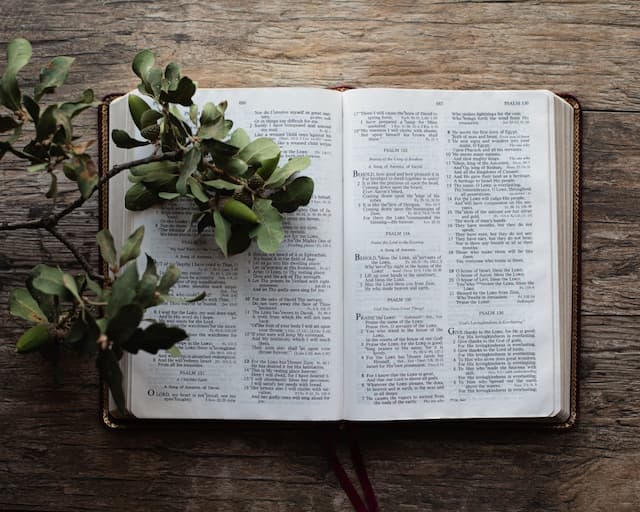Learning to Trust God - Carla D Burnette
“Trust in and rely confidently on the Lord with all your heart and do not rely on your own insight or understanding.” Proverbs 3:5 (AMP)
What does it mean to trust? The Biblical definition is “assured reliance on the character, ability, strength, or truth of someone”.
Not knowing the character of God or who He is may prevent us from fully trusting Him. This described me when I first became a Christian. Since then, my life has been a journey of learning to trust God with all of my heart.
Dr. Tony Evans provides further insight into the meaning of our key verse. He states, “the Hebrew word for trust means to lie down on – to put your entire weight on something. So in essence God says, ‘Trust Me completely; I can sustain you. Your own understanding won’t support you.’”
What comfort God will sustain us when we trust and what conviction when we turn to our own understanding.
How about you? Do you trust God completely?
Before you answer, consider how you would respond in the following situations:
- When God asks something of you that requires stepping out of your comfort zone, do you need a little nudge before obeying?
- In seasons of waiting for His plan to enfold, do you get frustrated and want to hurry His plans along?
- When God asks something of you that makes absolutely no sense, do you question why and hesitate to follow through on what He asks?
For each of these situations, let’s study the story of Abraham in the Bible and see how he responds. His life is an example of learning to trust God.
Abraham Called to Leave Home

In Genesis 12:1 (CSB), “The Lord said to Abram: Go from your land, your relatives, and your father’s house to the land that I will show you.” In addition, God promises to bless Abraham by making him into a great nation and a blessing to others (Genesis 12:2-3).
Abraham obeyed and left the city of Haran without questioning God’s directive. He trusted God would be true to His Word. Indeed, God proved His faithfulness to Abraham by protecting him and leading him to the promised land.
However, this wasn’t the first time God called Abraham to leave his country. Acts 7:2-4 tells us, “The God of glory appeared to our father Abraham when he was in Mesopotamia, BEFORE he settled in Haran, and said to him: Leave your country and relatives, and come to the land that I will show you. Then he left the land of the Chaldeans [Ur] and settled in Haran. From there, after his father died, God had him move to this land [Canaan] in which you are now living.”
Interesting isn’t it? But there’s more to the story. We discover in Genesis 11:31 that Terah, Abraham’s father, is the one who takes the initiative to leave Ur to go to the land of Canaan with Abraham, Sarah and Lot. But they stop at Haran and settle there for 50 years, instead of traveling to Canaan. We are not given a reason why. After Terah’s death in Haran, Abraham receives the second call from God to leave his country and continue on to the promised land.
Thoughts to Consider
Several questions come to my mind:
- Was Abraham supposed to leave his father, Terah, behind in Ur when he first received God’s call to leave his country?
- Was it his father’s decision to settle in Haran instead of traveling on to Canaan?
- Did God purposely wait until after Terah’s death to remind Abraham to continue on to the promised land?
We don’t know the answers to these questions, but let’s ponder some possibilities and their consequences.
Leave Hindrances Behind
First, leaving his father behind would have been very difficult, but we learn in Joshua 24:2 that Terah worshiped other gods. Did his father’s idolatry hinder Abraham’s relationship with God?
This leads us to reflect on our own lives. Is there something distracting us from God? It could be a relationship, a hobby, time on social media, etc. Perhaps setting boundaries is needed to guard our heart and mind, as well as our time with the Lord. Maybe letting go of something altogether is required. Pray and ask the Lord for guidance on what to do. Let’s not allow anything to hinder our relationship with the Lord, for only He truly satisfies our souls.
Step Out in Faith
Second, the decision to stay in Haran may have delayed God’s plans for Abraham. The same is true for us when we hesitate and stay in our familiar place, rather than obey God’s call to leave our comfort zone. Let’s be willing to step out in faith, trusting our omniscient God knows what is best. He will direct us, take care of us and equip us for the journey or task.
Draw Near to God
Third, since it appears that Abraham didn’t want to leave his father, did God use the delay in Haran to draw Abraham near to Himself? For Abraham obeys without hesitating the second time God calls him to leave home. Also, what patience God demonstrates with Abraham while he learns to trust. God is patient with us as well.
Let’s draw near to God by consistently spending time in His presence. As we do, our trust in Him will deepen, so that we will desire to obey without hesitation.
In part 2, we will continue our study of Abraham to see how he responds in certain situations. At times, Abraham trusts and other times, he struggles. Yet, the Lord is with Abraham and sees him through no matter what he faces. The Lord will do the same for us.
Father, Your ways are higher than our ways and You know our future. Help us to trust You and be obedient when You ask us to step out of our comfort zones. Even though we may not understand why, may we take that step out of trust anyway, knowing You will be with us every step of the way. We love You and desire to trust You with all of our hearts. In Jesus’ Name, Amen.
Comment below on the following:
- What spoke to you the most in this post?
- Is there a circumstance you struggle in trusting God?
Additional Scripture References:
Deuteronomy 31:8 (CSB), “The Lord is the one who will go before you. He will be with you; He will not leave you or abandon you. Do not be afraid or discouraged.”
Isaiah 41:10, “Do not fear, for I am with you; do not be afraid, for I am your God. I will strengthen you; I will help you; I will hold on to you with My righteous right hand.”
Psalm 32:8,10b, “I will instruct you and show you the way to go; with My eye on you, I will give counsel…the one who trusts in the Lord will have faithful love surrounding him.”
Isaiah 55:8-9, “‘For My thoughts are not your thoughts, and your ways are not My ways.’ This is the Lord’s declaration. ‘For as heaven is higher than earth, so My ways are higher than your ways and My thoughts than your thoughts.’”











